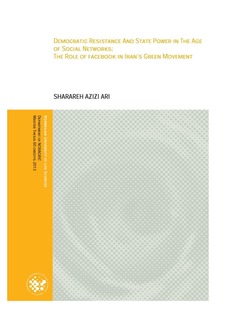| dc.description.abstract | The internet and social networks have contributed extensively to democratic political uprisings in the Middle East in recent years. We cannot think of the Iranian Green Movement in 2009 and the Arab Spring in 2010-2011 without thinking, at the same time, of Facebook, Twitter and You Tube. The roles played by the internet and social networks in these two significant political events in this region led me to ask and discuss the question: Have internet and social networks constituted an alternative public sphere in countries where freedoms of expression and assembly have not yet been institutionalized? I have tried to discuss the question in the domain of Iranian politics from 2009 to 2013, from the 2009 disputed presidential election to the 2013 presidential election and some of outcomes of the latter election up until now. I demonstrate, in this thesis, how the Iranian social networks contributed to the eruption of the Green Movement and how this Movement created the condition in which citizen journalism emerged in Iran. In my demonstration of the role of social networks in the Green Movement I revealed both strengths and weaknesses of the networks. I have demonstrated in this thesis how, in the absence of institutionalized freedom of speech in Iran, activists and journalists use Facebook to escape surveillance of mass media by the government.
Furthermore, as members of a network power they resist the Iranian government’s mechanisms of repression since social networks enable them to mobilize the masses for political protests. Since the eruption of the Green Movement Social networks and citizen-journalism have been the mainstays of the Iranian cyber public sphere. This cyber public sphere functions as an alternative public sphere that pressures the Iranian government to recognize citizen’s freedom of expression and assembly. I have demonstrated in this thesis that the Iranian network power on cyber space cannot be ignored by the government. By bypassing the government censorship and media gatekeepers the Iranian social networks share information and news. They discuss issues of public interest and shape public opinion and in doing so they empower the network power that they have created since the eruption of the Green Movement to demand their democratic rights. However, the struggle represented by the Iranian social networks in the alternative public sphere faces continuous backlashes and punishments of the government whether in forms of reducing the internet speed, blocking social networks or government’s monitoring of individual Facebook pages | no_NO |
